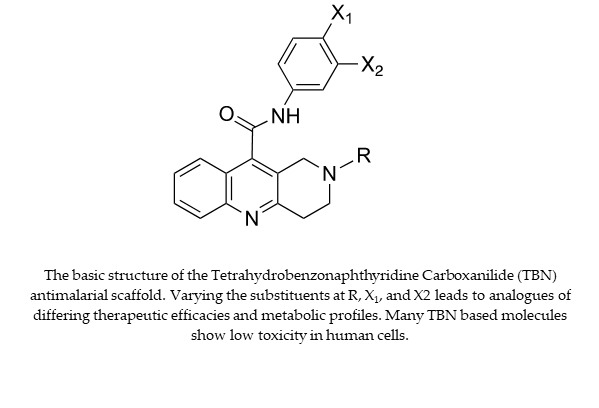
Invention Summary:
Malaria infects over 200 million people and results in nearly half a million deaths as well as up to $12 billion USD in lost economic activity. Although the prevalence of malaria has decreased steadily over the last two decades, progress has stagnated in recent years due to the emergence of drug-resistant malarial strains. These adapted infections are the focus of current anti-malarial research efforts.
Rutgers researchers have identified a new class of Naphthyridine Carboxamide based anti-malarial small-molecule inhibitors that are as potent as current therapeutics and act through a new mechanism. In-vitro assays against human blood cells infected with Plasmodium falciparum show toxicities in the single-digit nanomolar range, and tolerance studies in human hepatocytes show no toxicity at 3 orders of magnitude above therapeutic concentrations. Similar assays conducted using common drug resistant mutant malarial strains showed no difference in efficacy, suggesting a new and hitherto unidentified pathway for malarial cytotoxicity. Current treatments and newly developed drugs inhibit malarial growth through molecular targets that have long been established and will continue to be steadily rendered less effective by evolving resistant Plasmodium strains. This novel class of small molecules shows strong efficacy against standard and resistant parasite varieties and is a promising candidate for new anti-malarial therapeutics.
Market Applications:
- A new family of drugs to use against common or drug-resistant Plasmodium strains
- Potential addition to existing combination therapeutic regimens
- Potential oral formulation (pill)
Advantages:
- Novel mechanism of action undiminished in current drug-resistant mutations of Plasmodium
- More potent than most current therapies with efficacy at <10 nM concentrations
- Low toxicity in healthy human cells
Intellectual Property & Development Status: Nationalized PCT filed. Available for licensing and/or search collaboration. For any business development and other collaborative partnerships contact marketingbd@research.rutgers.edu.